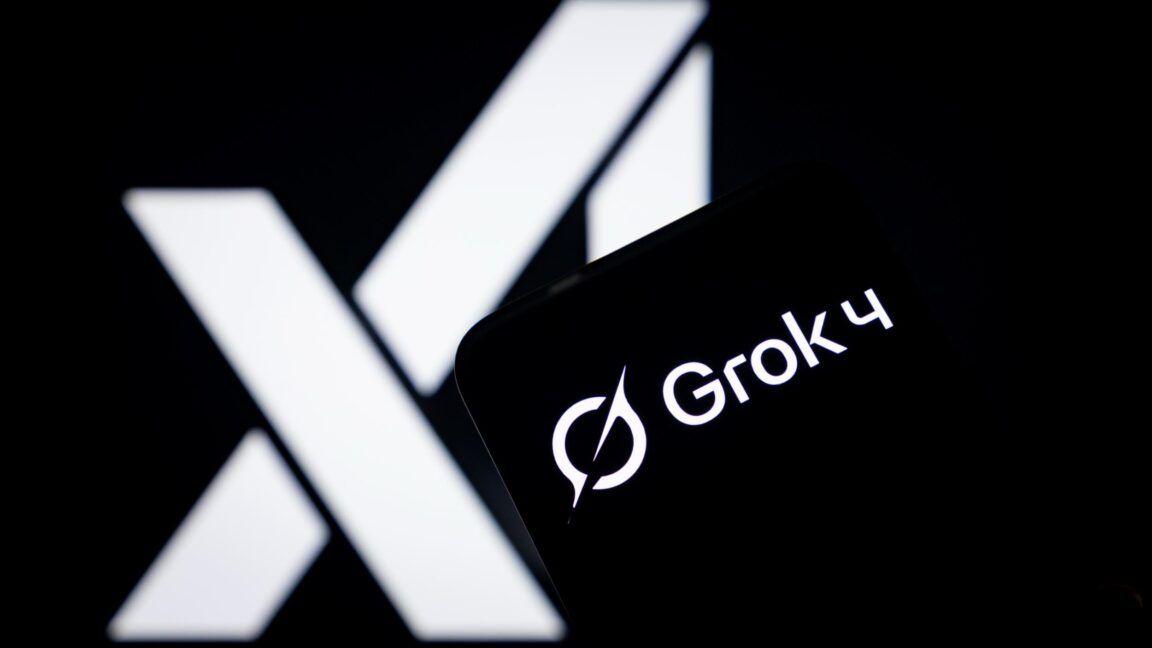Vivaldi Browser Takes a Stand Against AI Integration, Prioritizing User Control and Web Diversity
2 Sources
2 Sources
[1]
Vivaldi browser capo doubles down on generative AI ban
Jon von Tetzchner, CEO of Norway-based browser maker Vivaldi, believes the tech industry's efforts to automate web browsing using generative AI models have gone too far. "Every startup is doing AI, and there is a push for AI inside products and services continuously," he told The Register in a phone interview. "It's not really focusing on what people need." On Thursday, Von Tetzchner published a blog post articulating his company's rejection of generative AI in the browser, reiterating concerns raised last year by Vivaldi software developer Julien Picalausa. Google, Microsoft, Mozilla, Perplexity, and others have been busy integrating AI models into their respective browsers, while AI firms without browsers like Anthropic and OpenAI are testing extension-based integration or pursuing a browser of their own. Despite acknowledged security problems, these firms are proposing prompt-driven interaction, where users type or speak natural language commands to direct the browser-embedded AI model to take action on the their behalf. Von Tetzchner argues that relying on generative AI for browsing dehumanizes and impoverishes the web by diverting traffic away from publishers and onto chatbots. "We're taking a stand, choosing humans over hype, and we will not turn the joy of exploring into inactive spectatorship," he stated in his post. "Without exploration, the web becomes far less interesting. Our curiosity loses oxygen and the diversity of the web dies." Von Tetzchner told The Register that almost all the users he hears from don't want AI in their browser. "I'm not so sure that applies to the general public, but I do think that actually most people are kind of wary of something that's always looking over your shoulder," he said. "And a lot of the systems as they're built today that's what they're doing. The reason why they're putting in the systems is to collect information." Von Tetzchner said that AI in browsers presents the same problem as social media algorithms that decide what people see based on collected data. Vivaldi, he said, wants users to control their own data and to make their own decisions about what they see. "We would like users to be in control," he said. "If people want to use AI as those services, it's easily accessible to them without building it into the browser. But I think the concept of building it into the browser is typically for the sake of collecting information. And that's not what we are about as a company, and we don't think that's what the web should be about." Vivaldi is not against all uses of AI, and in fact uses it for in-browser translation. But these are premade models that don't rely on user data, von Tetzchner said. "It's not like we're saying AI is wrong in all cases," he said. "I think AI can be used in particular for things like research and the like. I think it has significant value in recognizing patterns and the like. But I think the way it is being used on the internet and for browsing is net negative." Von Tetzchner said he took a call several months ago from AI search and browser biz Perplexity as a courtesy but the discussion came to naught. "It was very clear that we had very different interests," he said. "We're not going public. We don't have the pressure on investors saying, 'Hey, you have to do the latest kind of buzzword because that will give you a higher valuation.'" The goal, he said, is to build the best possible web browser. ®
[2]
Vivaldi Is Not Jumping Into The AI Bandwagon
These days, it's hard to see a company actually go against the AI current. Everyone's doing AI these days, even if it's a tiny pointless feature that they're marking as being AI-powered. Vivaldi, however, is not drinking the Kool-Aid. Jon von Tetzchner, the CEO of the Norway-based browser developer Vivaldi, has voiced his strong opposition to the burgeoning trend of incorporating generative AI into web browsers. His argument is that this push for AI integration is not being driven by a genuine desire to meet user needs, but rather by industry hype. This is something I agree with, and it's also something I've argued myself in previous articles -- some of it could, and is, genuinely useful, but a lot of companies are just jumping on the AI bandwagon because it's the hot and trendy buzzword. "Without exploration," he writes, "the web becomes far less interesting. Our curiosity loses oxygen and the diversity of the web dies." Vivaldi, in his words, is "choosing humans over hype" and is committed to preserving the "joy of exploring" that has been a cornerstone of the Internet since its inception. Companies like Google, Microsoft, and Mozilla are all seemingly in a race to embed AI features into their browsers, and Microsoft notably rolled out a Copilot Mode to Microsoft Edge. Vivaldi will not be doing this, not only because the company doesn't want to, but also because Vivaldi's own users don't want any AI either. von Tetzchner claims that the vast majority of feedback he receives is in opposition to the idea of an AI-powered browser. He draws a parallel between the current AI trend and the algorithmic curation of content on social media platforms, both of which, in his view, strip users of their autonomy by making decisions on their behalf based on the data that has been collected about them. This is also not to say that Vivaldi is completely anti-AI. The company already utilizes pre-made AI models for its in-browser translation service, but this doesn't really rely or interact with any user data. Von Tetzchner acknowledges the value of AI in specific applications, such as research and pattern recognition, but maintains that its current implementation in web browsing is a "net negative." If applied correctly and in ways it will actually be used by people, it can be useful. And this not only applies to browsers, but to everything. If you really want to use AI, you can use Vivaldi to search up ChatGPT, Gemini, or whatever's your favorite chatbot -- you just won't see any chatbot actually built into Vivaldi. Source: The Register
Share
Share
Copy Link
Vivaldi's CEO, Jon von Tetzchner, reaffirms the company's stance against integrating generative AI into their browser, emphasizing user control and web diversity over industry hype.
Vivaldi's Stance on AI Integration
Vivaldi, the Norway-based browser developer, has taken a firm stand against the growing trend of integrating generative AI into web browsers. Jon von Tetzchner, the company's CEO, has doubled down on Vivaldi's commitment to prioritizing user control and web diversity over what he perceives as industry hype
1
.
Source: How-To Geek
In a recent blog post, von Tetzchner reiterated the company's rejection of generative AI in the browser, stating, "We're taking a stand, choosing humans over hype, and we will not turn the joy of exploring into inactive spectatorship"
1
. This position aligns with concerns previously raised by Vivaldi software developer Julien Picalausa.The AI Integration Trend
While major tech companies like Google, Microsoft, Mozilla, and others have been actively integrating AI models into their browsers, Vivaldi is swimming against the current. These companies are proposing prompt-driven interaction, where users can direct browser-embedded AI models through natural language commands
1
.However, von Tetzchner argues that this approach dehumanizes and impoverishes the web by diverting traffic away from publishers and onto chatbots. He believes that relying on generative AI for browsing could potentially stifle curiosity and diminish the diversity of the web
2
.User Feedback and Control

Source: The Register
According to von Tetzchner, the majority of Vivaldi users he hears from don't want AI in their browser. He told The Register, "I'm not so sure that applies to the general public, but I do think that actually most people are kind of wary of something that's always looking over your shoulder"
1
.Vivaldi's philosophy centers on giving users control over their own data and the ability to make independent decisions about what they see online. Von Tetzchner draws parallels between AI in browsers and social media algorithms that curate content based on collected data, both of which he believes compromise user autonomy
2
.Vivaldi's Approach to AI
It's important to note that Vivaldi is not entirely against AI usage. The browser currently employs pre-made AI models for in-browser translation, which don't rely on user data. Von Tetzchner clarifies, "It's not like we're saying AI is wrong in all cases. I think AI can be used in particular for things like research and the like. I think it has significant value in recognizing patterns and the like. But I think the way it is being used on the internet and for browsing is net negative"
1
.Related Stories
Industry Pressure and Vivaldi's Goals
Von Tetzchner revealed that Vivaldi had been approached by AI search and browser company Perplexity, but the discussion didn't lead anywhere due to conflicting interests. He emphasized that Vivaldi, as a private company, doesn't face pressure from investors to adopt the latest buzzwords for higher valuation
1
.The primary goal for Vivaldi remains building the best possible web browser, focusing on user needs rather than following industry trends. Von Tetzchner believes that if users truly want to use AI services, they can easily access them without having them built into the browser
2
.Implications for the Future of Web Browsing
Vivaldi's stance raises important questions about the future of web browsing and the role of AI in shaping user experiences online. As the debate continues, it remains to be seen whether other companies will reconsider their AI integration strategies or if Vivaldi's approach will resonate with a broader audience seeking more control over their browsing experience.
References
Summarized by
Navi
[1]
[2]
Related Stories
AI Browsers and the Future of Web Interaction: A Glimpse into Agentic Browsing
29 Aug 2025•Technology

Mozilla forms rebel alliance to challenge Big Tech's approach to AI browsers
31 Jan 2026•Technology

Mozilla's new CEO plans AI features for Firefox while promising users an opt-out kill switch
16 Dec 2025•Technology

Recent Highlights
1
SpaceX acquires xAI in $1.25 trillion merger, plans 1 million satellite data centers in orbit
Business and Economy

2
EU launches formal investigation into Grok over sexualized deepfakes and child abuse material
Policy and Regulation

3
SpaceX files to launch 1 million satellites as orbital data centers for AI computing power
Technology





